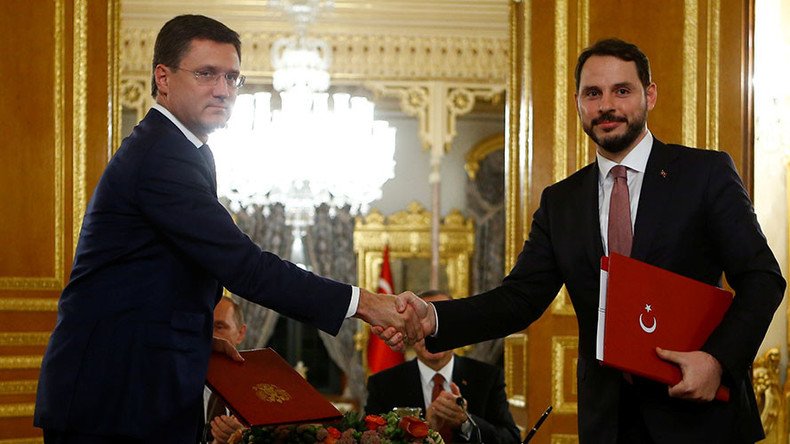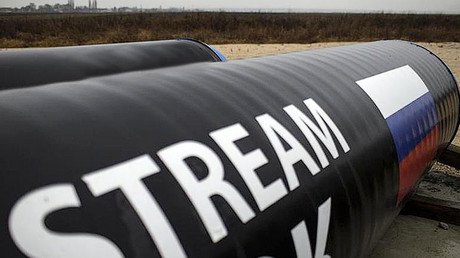Turkey’s parliament ratifies agreement with Russia on ‘Turkish Stream’ gas pipeline

The Turkish parliament has ratified a deal with Russia regarding the construction of a natural gas pipeline dubbed ‘Turkish Stream.’
The Grand National Assembly of Turkey voted 210 in favor of the agreement, with only seven opposing and six abstentions.
The bill was endorsed by the parliament on Tuesday, just days before Prime Minister Binali Yildirim is scheduled to arrive in Russia for a state visit.
Russia's lower house of parliament, the State Duma, may soon ratify the agreement, according to an MP heading the International Affairs Committee.
"Let’s not rush things, but I believe the document will be submitted to the State Duma in the near term," Leonid Slutsky told the TASS news agency.
"We still have some questions for the government. As soon as the document is submitted to the State Duma, we will raise these questions. We may hold a special session together with the Energy Committee because this is an important energy project concerning gas exports to Turkey and other countries,” the lawmaker added.
Back in mid-October, Moscow and Ankara inked the deal that envisions the construction of two underwater legs of a gas pipeline in the Black Sea, with a maximum capacity estimated at up to 15.75 billion cubic meters of natural gas annually per leg.
The construction of Turkish Stream is set to begin in 2017, and should be completed by late 2019.
At the end of October, Russian Foreign Minister Sergey Lavrov said that Moscow would be ready to extend Turkish Stream to the EU “only after we have received an unambiguous formal paper that guarantees the implementation of this project” from the European Union.
Presidents Putin and Erdogan signed the intergovernmental agreement to build the pipeline back in mid-October.
The project, which entails an estimated total cost of €11.4 billion ($12.7 billion), was announced in December of 2014 during Putin’s visit to Turkey as an alternative to the canceled South Stream route through Bulgaria.













